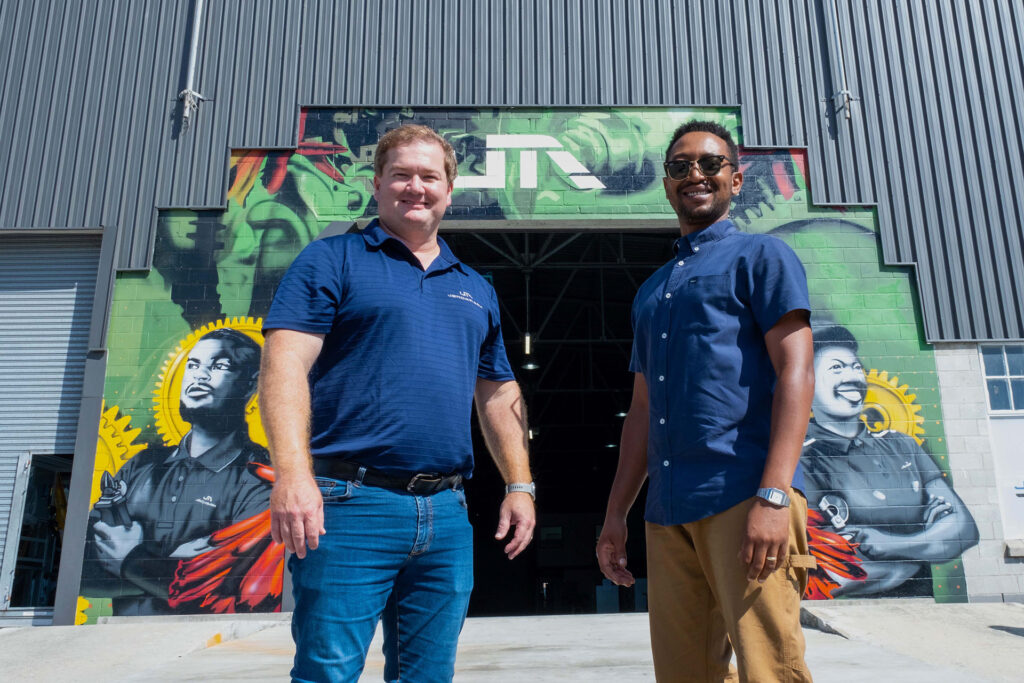
A LEADING South African tech company is spotlighting the country’s critical shortage of qualified artisans, with the hope of encouraging school leavers to pursue the much-needed technical trades.
According to Jendamark Automation, which builds and exports automotive component assembly systems for the global market, artisans are in high demand both locally and abroad, with good career prospects for those who progress successfully through vocational training programmes.
Last November, minister of higher education, science and innovation Blade Nzimande stated that South Africa needed at least 60% of school leavers to pursue artisan type training to meet the country’s demand for scarce skills.
Jendamark manufacturing and assembly manager Marinus van Rooyen said the company had noticed a worrying decline in the number of applications for advertised positions for artisans, especially among toolmakers.
“We are concerned about this trend and have found that this challenge is not unique to Jendamark, as our local and national manufacturing suppliers are experiencing the same frustration,” said Van Rooyen.
He said most matriculants viewed a university degree as the only qualification to aspire to but that many flourished in a more hands-on, practical learning environment.
“South Africa’s manufacturing sector can only grow if we have the talented engineers, artisans and technicians who have the skills to build and fix things,” said Van Rooyen.
Speaking at the official unveiling of a mural by Gqeberha-based artist Buntu Fihla at the company’s manufacturing and assembly hall, Van Rooyen said the aim of the mural was to instil pride among employees and to depict respect for the artisan.
“We want visiting school groups, students and employees to understand the value of having a trade and that it is a career path to be proud of, which offers many opportunities.
“For trade-tested artisans, the world is their oyster. There is a shortage of technical skills globally and we have found that many South Africans are being lured overseas by international recruiters.”
The country’s National Development Plan has a set target of turning out 30,000 artisans per annum by 2030. Current estimates suggest an average closer to 20,000, resulting in a shortage of what are categorised as “priority skills”.

Van Rooyen said Jendamark had been contributing to this skills development drive for the past decade by running its own in-house apprenticeship programme for mechanical fitters, electricians and toolmakers.
The four-year programme, which is overseen by MERSETA and endorsed by the Department of Higher Education and Training, has so far delivered an overall 98% pass rate for apprentices taking their trade test.
Qualified toolmaker and apprentice mentor Funeka Gusha, herself a product of the programme, is responsible for coaching Jendamark’s toolmaker apprentices through the work-based learning process.
“In becoming an artisan, you gain lots of skills and opportunities,” said Gusha.
“You’ll be able to earn an accredited Red Seal certificate, do better paid work, and, like me, may even be called upon to teach others.”
As a woman in a male-dominated industry, she said she was proud to have chosen a challenging career path and was pleased to share her expertise and experience with the young men and women coming through the ranks.
“I’m enjoying being a mentor. It has taught me a lot in terms of personal growth, patience and dealing with the different students. Seeing them working hard with determination inspires me. We’ve got one candidate who is preparing for his trade test right now and the dedication he is showing is amazing.”